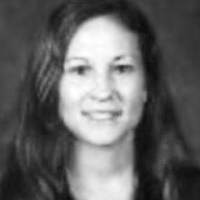This text is being provided in a rough draft format. Communication Access Realtime Translation is provided in order to facilitate communication accessibility and may not be a totally verbatim record of the proceedings.
Click Here to View Supplemental Handouts
>> Amy Hansen: Good afternoon, everyone, and welcome to today's Expert Seminar, "Early Writing Development: Exploring Beliefs, Assumptions and Roles of the SLP", presented by Dr. Lara Wakefield. Lara Wakefield has 16 years of experience as a speech language pathologist. She has researched the roles of the SLP and teachers in collaborative settings related to language and literacy for 13 years in several grant funded projects. She has presented at state and national meetings on these topics as well. She has a specific interest in writing development in children ages two to seven. Dr. Wakefield has worked in a variety of settings including rehabilitation, home health, schools and universities. She is now in private practice as a speech language pathologist and parent advocate at Wakefield Consultation Services LLC. So welcome this afternoon, Dr. Wakefield, and thank you so much for sharing your expertise with us.
>> Dr. Wakefield: Well, thank you for joining me today. I'm excited to discuss the topic of early writing development with you. Before we get started I wanted to quickly mention another course for you to consider as a companion course to this one. It is course 2799, "The Collaborative Classroom Intervention Toolkit: The Nuts and Bolts of Collaboration", presented by Dr. Linda Wellman and me. If you're trying to find CEUs related to literacy and collaboration. This is a course that may be helpful to you and you can find it on SpeechPathlogy.com. Okay, let's get started.
Purpose (1)
One of the great things about engaging in continuing education is that we have a chance to be reflective in our practice. That is my goal today in presenting information with you. I want you to examine some of your beliefs and assumptions and we're really going to talk about assumptions and your role as a speech language pathologist in the area of early writing development. We are very busy professionals with many demands placed upon us and sometimes we do not have time in our day to sit back and reflect about what we are doing as therapists. Sometimes we can turn into little SLP robots and we go through the motion of the day without getting a chance to think about what we're doing. Sometimes we don't have time to go to the bathroom much less have time to reflect about our practice. So, today, I ask you clear your mind and reflect on some of these ideas I'm going to present to you.
We will begin our discussion with a warm welcome from a preschool writer. This little girl was told to make a welcome sign to an art show for her school. She spent an hour creating a banner with each letter coming to life to say hello to the parents attending the show. I thought it was an excellent way to open the discussion on early writing. It illustrates one of the most important ideas about writing and that writing must be purposeful. It must serve some purpose for the writer and inherent in purpose is intent and audience. Sometimes the intent is to communicate a message to an audience of one such as a note or an e-mail to a friend. Other times writing can serve as a note-taking process. For example, right now you might be taking notes so that you can remember some information for later as a reference and in this case you are your own audience. If you will note I numbered purpose with a 1 in a parentheses in the slide and the reason I did this is because I want to introduce you to five ideas here in the beginning of the presentation because later we will discuss these ideas when we get into roles of the speech language pathologist. This way you will be able to bridge that information from the beginning to the end.
Introduction: Activate Prior Knowledge (2)
I'm going to tell you some background about myself. If we were having a typical 'getting-to-know-you' chat I would ask you questions about yourself so we kind of have to pretend a little bit here in that we're activating prior knowledge about the current topic of early writing development. This is the second idea of writing I want you to think about. In this imaginary chat that you and I are having we will share information. Let's say that you are telling me that you worked in a few HeadStart classrooms and you had some experience in elementary school. You've had about 5 years of experience working with children in the area of writing and that you have been frustrated with the way writing is addressed in the schools. I would share some similar information with you about how I have worked in those settings and had some of the same experiences. We would probably continue to talk until we found some common ground. Then, we would talk and probably discover some divergent experiences. We would activate our prior knowledge on the topic of early writing development as we gained insight into each other's experiences on the topic. This is the same for children. There needs to be some type of activation of prior knowledge about a topic before engaging them in writing. This is the second important idea I want you to think about when we discuss roles later. It is a key point related to a child's ability to interact with friends. This is also related to Gordon Wells' research on storying. It is how children attempt to make meaning of their shared experiences. And I will be storying throughout this presentation as a means of sharing information with you.
